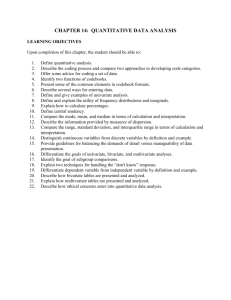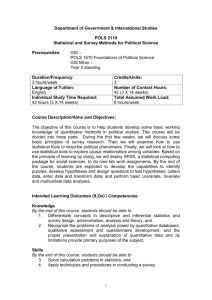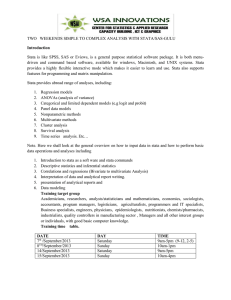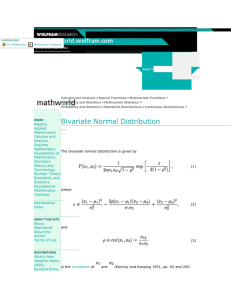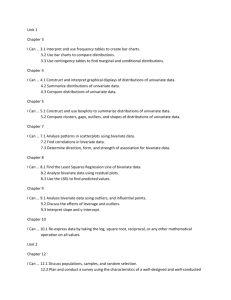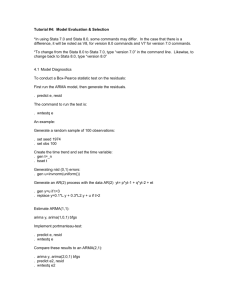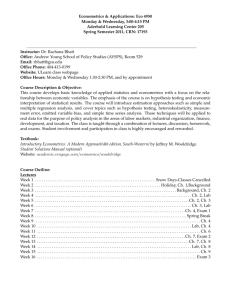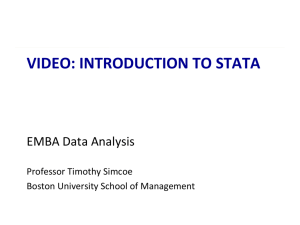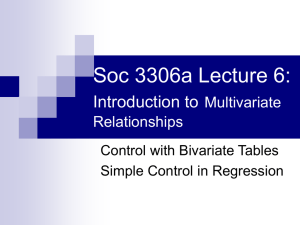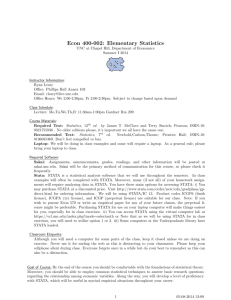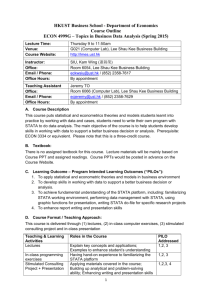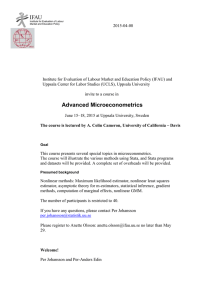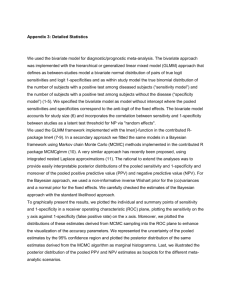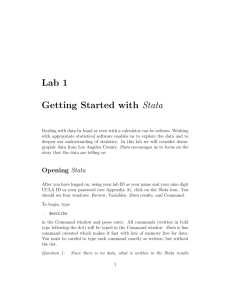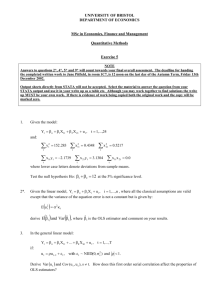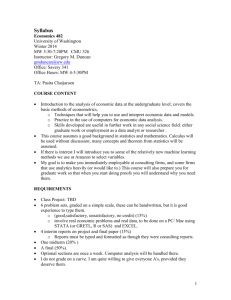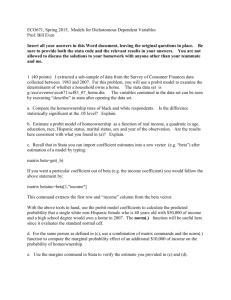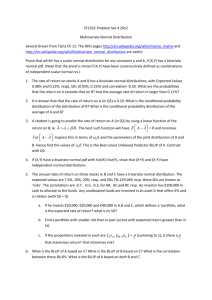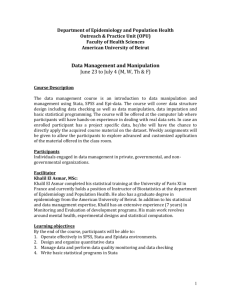Slides - Courses
advertisement
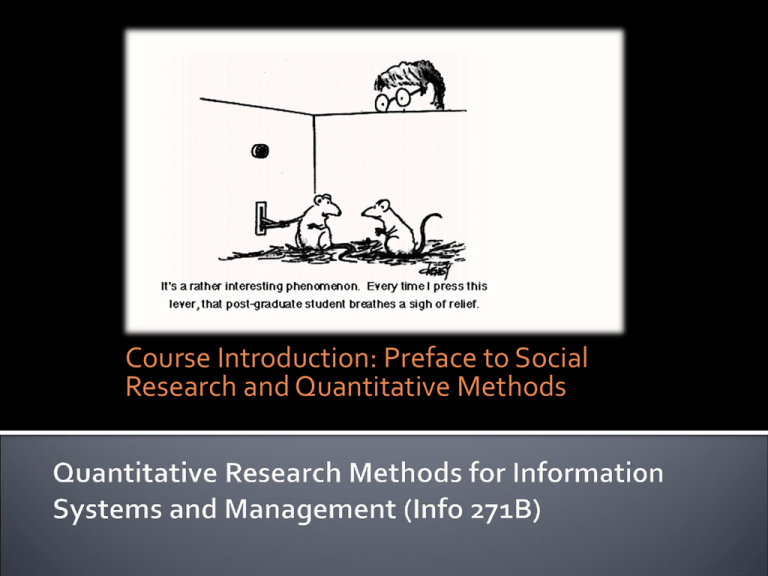
Course Introduction: Preface to Social Research and Quantitative Methods Coye Cheshire (coye@ischool) Office 305A Office Hours: Thursday 5-6:30pm Course Website: http://courses.ischool.berkeley.edu/i271b/f12/ Part lecture, part skills development Usually one major topic per week Some time devoted to working in groups on research design and data analysis (labs) Three major course sections Research Methodology (weeks 1-5) Probability, Intro Stats, STATA(weeks 6-9) Bivariate and Multivariate Analyses (weeks 10-15) Primarily lecture, but I am a very strong proponent of discussion and Q/A when it helps others understand concepts and issues. My slides will be uploaded to the website after each class. If I have notes, they are in the powerpoint document as well. If I forget to upload the slides, feel free to harass me (non violently if possible) until I give in. Statistics (4th Edition) Freedman, Pisani and Purves Buy the paperback and/or used copies through Amazon to save money Social Research Methods (1st edition) Bernard, Russell Used copies of the 1st Edition through Amazon are ~ $25 plus shipping I will distribute a few readings as pdf’s or link to articles. These will be posted on the website at least a week in advance (but usually earlier) All course examples will use STATA You can purchase a STATA 12 6-month license ($65) through the grad plan: http://stata.com/order/new/edu/gradplans/gp-campus.html Bring your laptop to class if applicable. We will devote class time in many sessions (starting in week 6) to work with statistical software (STATA). If you choose not to bring a laptop to class, I encourage you to sit with anyone who has a statistical software package when we begin to use it in class. Three “lab assigments” (30%) Always started in class, due following week Most are group assignments, but some require individual deliverables from your group work. Final Exam (60%) Will cover major topics in class Will allow you to use the dataset of your choice. Challenging, but will be a take-home exam allowing plenty of time to complete. Participation and Instructor Discretion (10%) You will have good knowledge of common research methods used in quantitative research (sampling techniques, surveys, experiments) You will be able to locate and use secondary numeric datasets from various sources (Roper, ICPSR, Berkeley Data Center, etc) You will be able to prepare, recode and error-check numeric data. You will be able to use a general purpose statistical package to conduct and interpret statistical analyses You will understand basic univariate statistics, bivariate statistics and linear regression And, what do you want to get out of this course? Part I: Research Methods Defining and justifying research problems for quantitative studies Theory and Measurement Sampling, Survey Data Collection, Questionnaires Experimental design Choosing methods to match research problems Part II: Probability and Statistics Probability and Sampling Working with structured data (recoding, error checking) Univariate statistics Probability and normal distributions Part III: Bivariate and Multivariate Analyses Bivariate Statistics (correlation, t-test) Chi-Square (analyzing nominal data) Linear Regression (bivariate and multivariate) Reading: Bernard Chapters 1 and 2 I will send out an electronic copy for just these two chapters since your books may not arrive for a few days. We will begin with an intro to foundational concepts in social research methods, common terminology. Come prepared to discuss
